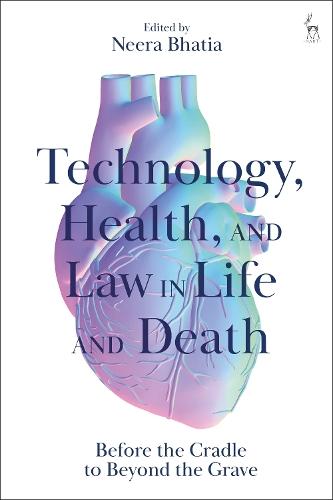Overview
This book brings together leading global scholars to examine the legal, ethical and social implications of biotechnological innovations in healthcare throughout the lifecycle — from the potential of life being formed outside the womb to the possibility of life after death. Biotechnological innovations in healthcare have extended the life span of human beings in the 21st century. Emerging health technologies have resulted in human beings living longer, and improving the quality of their lives and their deaths. What were once considered matters of science fiction have now become a reality in a burgeoning field of boundary-pushing advancements. However, emerging health technologies require careful regulation and ethical scrutiny. There must be a balance between what can be done and what should be done in technology, health and law. This book uniquely takes the reader on a journey of the life cycle — from before the cradle to beyond the grave — of biotechnological innovations to better understand what healthcare of the present and future might hold. It examines how emerging health technologies are profoundly disrupting legal knowledge of life and death in the developed world. The book makes a significant and original contribution to the field of health law and bioethics by adopting a socio-legal perspective in examining the legal, ethical and social implications of technologies that create, sustain and foster life and death.
Full Product Details
Author: Neera Bhatia (Deakin University, Australia)
Publisher: Bloomsbury Publishing PLC
Imprint: Hart Publishing
ISBN: 9781509978816
ISBN 10: 150997881
Pages: 208
Publication Date: 11 December 2025
Audience:
Professional and scholarly
,
College/higher education
,
Professional & Vocational
,
Tertiary & Higher Education
Format: Hardback
Publisher's Status: Forthcoming
Availability: Manufactured on demand 
Table of Contents
Introduction, Neera Bhatia (Deakin University, Australia) 1. Ectogestation and Reproductive Justice, Zoe Tongue (University of Leeds, UK) 2. The Sexual and Reproductive Health Revolution of FemTech will not be Sufficiently Regulated: The Current Regulatory Gaps in the Protection of FemTech Users, Manna Mostaghim (London School of Economics, UK) 3. When is a Stem Cell-Based Embryo Equivalent to a Natural Human Embryo? Julian Koplin (Monash University, Australia) and Neera Bhatia (Deakin University, Australia) 4. An NHS Medical Devices Information System: Legal and Ethical and Regulatory Challenges, Jean McHale (University of Birmingham, UK) 5. Parents, Children and Open-Source Artificial Pancreas: Morality in the Era of Healthcare Financialisation, Giles Birchley (University of Bristol, UK) 6 Neuroethics, Governance, and the Brain, Neuroethics, Rights, and the Brain, Nathan Higgins, Stephanie K Slack, John Gardner and Adrian Carter (Monash University, Australia) 7. Life after Death: Ethical, Legal and Social Implications of Cryonics, Emma Kowal and Neera Bhatia (Deakin University, Australia) 8. New Funerary Methods: Technological Innovation, Sustainability, and the Role of Law, Heather Conway and Gerard Kelly (Queen’s University, Belfast, UK) 9. The Digital Afterlife - Grieving Digitally After Death, Matthew Groves (Deakin University, Australia) and Prue Vines (University of New South Wales, Australia)
Reviews
Author Information
Neera Bhatia is Associate Professor at the School of Law, Deakin University, Australia.
Tab Content 6
Author Website:
Countries Available
All regions
|



